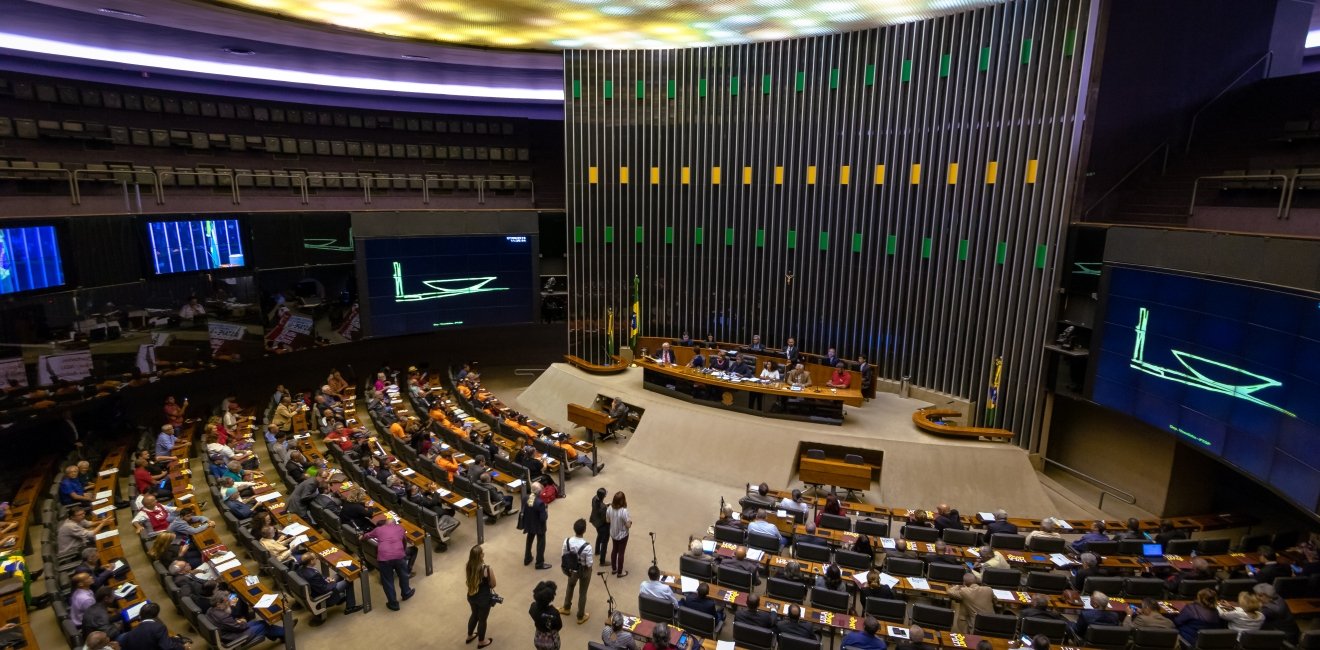
A blog of the Brazil Institute
2020 was an important year for congressional activism in Brazil. Working remotely since March, lawmakers prioritized legislation related to the COVID-19 pandemic, with roughly 46 percent of the 133 bills enacted by Congress being linked to the COVID-19 crisis.
Among these proposals was the COVID-19 emergency aid program, which was the result of legal framework originating from a bill submitted by Congressman Eduardo Barbosa. Meanwhile, legislators secured the approval of other key proposals, such as the National Basic Education Fund (Fundeb), which was made a permanent policy in July.
However, 2020 also saw Congress largely fail to pass the government's economic agenda, including reforms to the tax system and public service, as COVID-19 consumed the agenda.
The lawmaking process for the approval of the COVID-19 emergency benefit program is indicative of a long-term pattern of congressional activism that dates back to the early 2000s. The federal government initially proposed a monthly benefit of just R$200 ($37 at the time of publication), but the lower house made its own proposal to raise payments to R$500 ($93). Under pressure and not wanting to be outdone by Congress, the government increased the benefit further, settling on R$600 ($111) to be paid each month. Subsequently, Senator Randolfe Rodrigues sponsored changes that expanded the pool of recipients to include senior citizens, people with disabilities, and individuals with chronic illnesses.
Elsewhere, a group of lower house representatives were responsible for a law that allowed the immediate release of medical equipment and medication. Congress also actively approved executive-sponsored bills addressing the COVID-19 crisis, such as provisional decrees authorizing pandemic-related spending and a bill that specified social distancing and quarantining guidelines.
Education, Racism, and Sanitation
Congressional activism has been observed in other policy areas besides the COVID-19 pandemic, with legislators either leading lawmaking processes or aiding the executive branch in discussing and improving its proposals.
A prime example of this concerned the National Basic Education Fund (Fundeb). Set to expire at the end of this year, Congress approved a constitutional amendment with the help of civil society organizations that made Fundeb a permanent fixture.
The change benefits millions of students enrolled in the public education system, as it guarantees funding for teachers and school administrations. The new amendment also increases the amount of money invested by the federal government in public education. Recently, the House and Senate approved a bill to regulate the implementation of Fundeb.
Civil rights have also been on the forefront, with the lower house approving a bill December 9 to ratify the Inter-American Convention Against Racism. Human rights treaties and international conventions approved by Congress have the same force as constitutional amendments, meaning that if the Senate follows suit and approves the treaty, Brazil would have a constitutional mandate to prevent, eliminate, prohibit, and punish all racists acts.
Earlier in the year, in discussions around Brazil’s new sanitation law, legislators served as co-policymakers to the federal government. The approved framework has the goal of universalizing access to water and sanitation systems by 2033. In conjunction with the federal government, members of Congress worked to improve the bill since its submission by way of a provisional decree sponsored by the government of ex-President Michel Temer.
No Push for Government-Backed Bills
Despite this activism in several policy areas, Congress has done little to approve important structural policies sponsored by the Jair Bolsonaro administration. Party squabbles in November locked the legislative agenda in the House and prevented representatives from voting on any substantive proposals.
However, much of this lack of activity lies at the doorstep of the Bolsonaro administration itself. Throughout 2020, Economy Minister Paulo Guedes has delayed sending the government’s proposals for tax and public service reforms. Recently, House Speaker Rodrigo Maia issued a challenge to Mr. Guedes, saying, “there are no more excuses” for the government to delay furthering structural reforms.
Indeed, Mr. Maia himself is at the center of Congress’ main focus at the beginning of this year. In February, both the House and Senate will hold leadership elections, and while Rodrigo Maia will not be allowed to run for another term as Speaker, he will be hoping that Congress elects his handpicked successor.
Regardless of who gets the job, the House is poised to continue its part in the broader trend of congressional activism. However, furthering the government's economic agenda will require significant goodwill between the legislature and executive branches.
Like the content? Subscribe to the Brazilian Report using the discount code BRAZIL21 to get 20 percent off any annual plan.

Author

Brazil Institute
The Brazil Institute—the only country-specific policy institution focused on Brazil in Washington—aims to deepen understanding of Brazil’s complex landscape and strengthen relations between Brazilian and US institutions across all sectors. Read more

Explore More in Brazil Builds
Browse Brazil Builds
They're Still Here: Brazil's unfinished reckoning with military impunity




